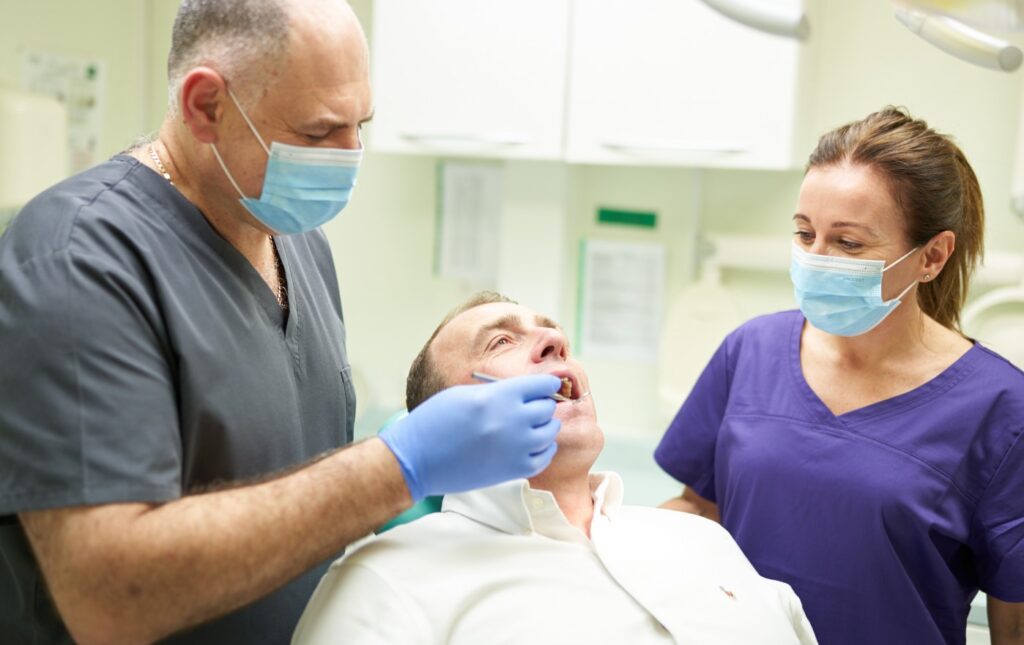Selecting the right oral surgeon is a significant step when facing procedures that go beyond general dental care. An oral surgeon’s expertise assures safe, effective treatment and a smooth recovery. By knowing what factors to pay attention to, you can make a confident choice and feel assured that your care is in expert hands. Here’s how to choose the right dental surgeon for your needs:
Check Credentials and Experience
The qualification of an oral surgeon forms the foundation of quality care. Verify that your potential surgeon holds proper licensing in your state and maintains current certifications. Experience with your specific procedure also matters. Ask about the surgeon’s background with cases similar to yours and request information about their training.
Surgeons who have performed numerous similar procedures often deliver better outcomes. Inquire about their continuing education efforts, as ongoing learning keeps practitioners current with new techniques and technologies. The surgeon’s hospital affiliations can indicate their standing in the medical community. Hospitals conduct thorough credentialing processes before granting privileges to practice.
Evaluate Service Range
Different oral surgeons offer varying levels of service specialization. Some focus on specific procedures like dental implants, while others provide comprehensive surgical care. Determine whether the practice handles your specific needs and any potential complications that may arise.
Modern oral surgery practices offer services including tooth extractions, dental implant placement, jaw surgery, and treatment of facial trauma. Practices that provide multiple related services can offer continuity of care if your treatment plan evolves. Confirm whether they handle emergency situations, as complications can occur outside regular office hours.
The availability of advanced technology enhances treatment precision and patient comfort. Practices equipped with modern tools often provide predictable results. These tools allow for better treatment planning and minimally invasive procedures when appropriate.
Research Patient Comfort and Safety
A quality oral surgery practice prioritizes patient comfort and safety during the treatment process. Sedation options allow patients to remain relaxed during procedures, while comprehensive safety protocols protect against complications. Ask about available sedation methods and the surgeon’s experience with each type.
The facility should maintain strict sterilization standards and follow established infection control protocols. Clean, well-organized treatment areas with modern equipment indicate a practice that values patient safety. Pain management strategies affect your recovery experience significantly. Surgeons should provide clear instructions for post-operative care and pain control options.
Review Reputation and Patient Feedback
Patient reviews and testimonials provide insight into the real-world experience at a particular practice. Look for patterns in feedback regarding communication, treatment outcomes, and overall satisfaction. Multiple sources of reviews offer a complete picture than single review platforms.
Professional referrals from your general dentist or other healthcare providers carry significant weight. These professionals understand quality standards and recommend surgeons with proven track records. Ask your referring provider about their specific experience with the recommended surgeon.
The surgeon’s reputation within the dental community also matters. Colleagues who refer patients to a particular surgeon demonstrate professional confidence in their abilities. Active participation in professional organizations and speaking engagements at dental conferences often indicates respected expertise.
Consult an Oral Surgeon Today
Choosing the right oral surgeon requires a careful evaluation of credentials, services, patient care standards, and reputation. Take time to research potential providers thoroughly and schedule consultations with your top choices. Contact a qualified oral surgeon in your area and schedule a consultation to discuss your specific dental needs.

